Reflecting on 10 episodes of Emacs Chats
| emacsI've posted ten Emacs Chat episodes so far, and the transcripts for the most recent ones are coming soon. These are hour-long conversations with Emacs geeks about how they got started with Emacs, why they like it, and how they use it. We usually go through people's config files, too, since that often leads to interesting tips.
 |
Jānis Mancēvičs
Literate programming, Unity game development, code folding |
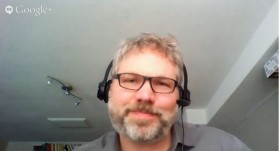 |
Tom Marble
Org Mode, time tracking, LaTeX, and invoice generation. Also, Clojure + Emacs and other good things. |
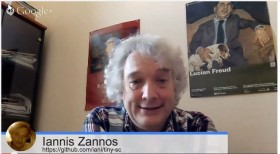 |
Iannis Zannos
Music and SuperCollider |
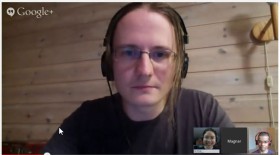 |
Magnar Sveen
Hanging out with other Emacs geeks, Emacs Rocks, and board games |
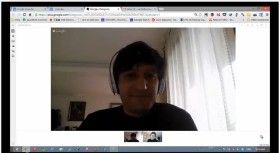 |
Bastien Guerry
Org Mode maintenance, getting started with Emacs, hacking his life with Org |
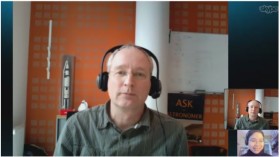 |
Carsten Dominik
Getting started with Emacs, the joys of Calc, and other cool things |
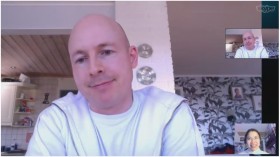 |
Thomas Kjeldahl Nilsson Thomas shares about Emacs and picking up configuration snippets from EmacsWiki. |
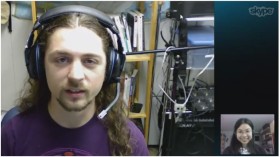 |
Avdi Grimm Org-mode literate programming, Ruby, and how he got started with Emacs. |
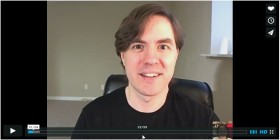 |
John Wiegley Emacs Lisp development and other good things |
| and me! =) | Sacha Chua in which Bastien Guerry interviews me |
I started this because it was so much fun meeting Emacs geeks in person at the Emacs Conference in London last year. (When are we having another one? I'm happy to sponsor a reasonable venue.) You pick up lots of tips when you watch how someone else uses Emacs, but not everyone has the luck of working near other Emacs geeks. (I don't!) I also wanted to get to know other Emacs geeks so that I could “hear” their voices when reading mailing list messages and code snippets. I wanted other people to get that feeling of knowing people in the community – other real people who use Emacs.
I was pretty anxious about it in the beginning. Would I be able to ask interesting questions, or would there be dead silence? What if I hadn't researched people well enough? Would asking people about their beginnings get repetitive after many episodes? I feel a little more relaxed now. It turns out that it's easy to invite people to be on one of these conversations, and I always find the conversation interesting. People are so enthusiastic about Emacs. Yay!
It's been great hearing stories from people who've been using Emacs for ages (like Iannis Zannos and Tom Marble) and people who've gotten into Emacs fairly recently (like the way Magnar Sveen only seriously started using it a few years ago). Org Mode frequently pops up in conversation. I've learned about lots of other interesting packages as well, like redshank and erefactor.
People tell me that they enjoy listening to the episodes. The episodes are still on the long side (an hour or so, versus short-and-punchy 15- or 30-minute chats), but they're good for picking up odd tips.
Of the little podcast experiments I've been running, the Emacs Chats series is my favourite. Other experiments were easier to sketchnote (which people also really enjoyed), but I like the Emacs community the most. =)
From these experiments, I've learned that Google Hangout on Air is a convenient way to create an audio/video show with guests. With a little bit of work, you can turn these conversations into podcasts that people can download and subscribe to, transcripts that people can read, and so on.
I wanted to learn how to delegate a smoothly-running process. That worked out really well. Now, when I finish an episode, I simply add a card to my Trello board with the URL and my assistants will post the show notes and the transcript for me.
I could probably make this even better by following up. I can spend more time editing the transcripts, adding links, and summarizing key points. Maybe I'll convert the transcripts to Org Mode and then structure things more from there.
In terms of scheduling, picking times that are a month or two away seems to be working well. I like proposing specific times with Boomerang Calendar. It feels more proactive than asking people to check https://sachachua.com/meet for meeting times, although both ways still involve a bit of work for the other person since they have to check their calendar. If I suggest the times and do the timezone conversions myself, that means we can set the time with fewer clicks required from the other person. It doesn't feel as stand-offish as cc-ing an assistant who may or may not be able to quickly reply. (Although perhaps I should train my current assistants to do this, since they seem to be fairly responsive…)
I mostly find people through recommendations, so if you want to hear from someone, suggest them or introduce us by e-mail. I'd love to interview more women who use Emacs (maybe Amelia Andersdotter?), but I'm happy to chat with all sorts of folks about Emacs. You don't have to be famous. =) If you've got an interesting demo to share, I'd love to hear from you too.
Onward! With Alex Poslavsky's help, I've been adding more Emacs Chats resources to Github so that people can easily subscribe to it or contribute there. I noticed a few of them were missing transcripts, so we'll work on that too. What else would make these Emacs Chats better or more useful for you?

7 comments
Raymond Zeitler
2014-04-29T21:46:40ZI've only seen four of the chats so far, and I really enjoy them. I'm glad you posted this so I can catch up on what I've missed!
sachac
2014-05-02T00:23:19ZI'm working on getting all of them transcribed and stuff. =) In the meantime, they should all be on the Youtube playlist, so you can go to http://sachachua.com/emacs-... and play them continuously. ;)
kar
2014-04-30T13:37:16ZThere's a new Emacs MeetUp group that started up in New York recently (http://emacsnyc.org) - their second meeting is scheduled for May 5. Perhaps they're well-situated to organize the next Emacs Conference?
sachac
2014-05-02T00:22:30ZYes, they would be! =D I like how they've posted a list of topic suggestions, too. (http://emacsnyc.org/giving-... Maybe after a couple of meetups, they'll be up to the challenge? =)
Stian Håklev
2014-05-06T19:27:01ZMy personal experience with listening/watching a few of the talks is that I separate my content into two categories. I really enjoy listening to podcasts when I walk, or do dishes. I don't mind that they're long (one of my favourite podcasts is CRE with Tim Pritlove, who might sit down with an experienced city planner for 3 hours and discuss everything from Babylon to Syrian suburbs)... The other is watching screencasts (live coding, math, etc). In that case, I'd like to be able to speed it up (1.5x or 2x), pause, etc. Usually shorter videos are better, with a good pace.
My problem was that I would start watching one of your interviews, which was mainly you talking to someone on video chat, and feel bored, so I downloaded the MP3 and put it on my iPhone. Next time I went for a walk, I started playing it, but then in the middle, you ask him to show you stuff, and there's a bunch of interesting stuff I can't see, so I had to stop the podcast...
So this is just my personal case, and I'm not necessarily saying this applies to anyone else, but to me, it would be better if you separated out the talking (how they got into Emacs, ideas, stories etc) from the showing (walk me through your .emacs.d etc)...
(One interesting thing I realised from listening to podcasts, btw, is how often the image isn't important. For example, I usually listen to a daily news podcast from Germany (they have very good coverage of the Ukraine conflict). and over time totally forgot that it's actually just the MP3 of their TV news, because I never missed having the images).
Anyway thanks a lot for these podcasts in general, and all your knowledge sharing around Emacs!
sachac
2014-05-07T00:14:51ZThat's an interesting note. =) Would a YouTube link that jumps straight to the screencasting part help, or do you need it to be a separate video? For example: Xah Lee's HTML workflow: https://www.youtube.com/watch?v=rKPKWqvTImA#t=966 (hmm, the automatic Disqus embed is not particularly helpful...)
Xah Lee
2014-05-07T11:09:03Zhi sacha, here's a short list i like to see.
BoÐil Stokke
Steve Purcell (MELPA, …)
Vivek Haldar/ @vivekhaldar
Tassilo Horn (emacs dev. doc-view-mode, …)
Alex Schroeder (@kensanata) (emacswiki)
Stefan Monnier (one of current emacs leader)
Drew Adams (long time emacs dev. ⁖ dired+, bookmark+, Icicles, …)
Eli Zaretskii (long time emacs dev. ⁖ woman.el, emacs port for Microsoft Windows, …)
YAMAMOTO Mitsuharu (core emacs dev. UTF-8 support, …)
Michael Albinus (core emacs dev. Support for D-Bus, X11 stuff, …)
Stephen J Turnbull (xemacs leader …)
David Kastrup (long time emacs dev.)
Steve Yegge (well-known Googler)
Lars Ingebrigtsen (long time emacs dev. Gnus, Gmane, ewws, …)
the first few are also on twitter. again, thank you for doing this. Truly a great service to the community.